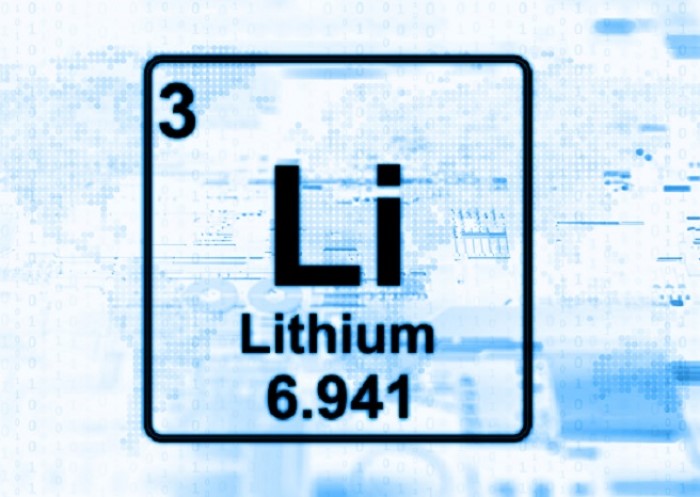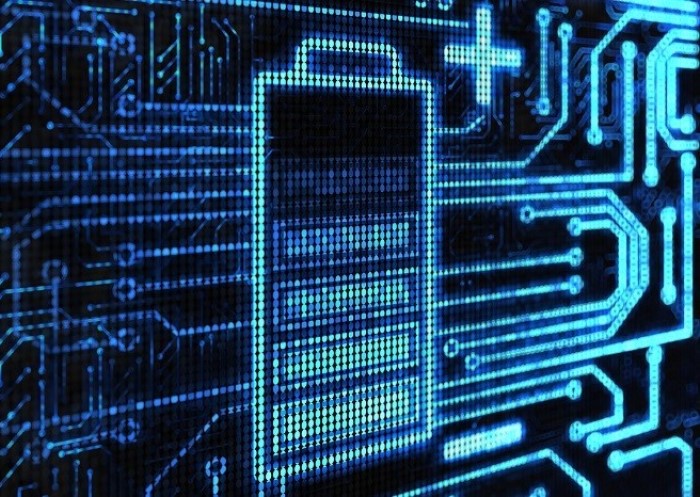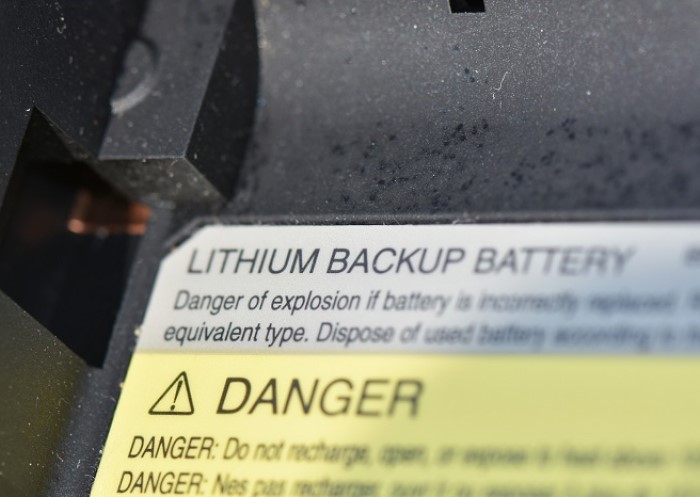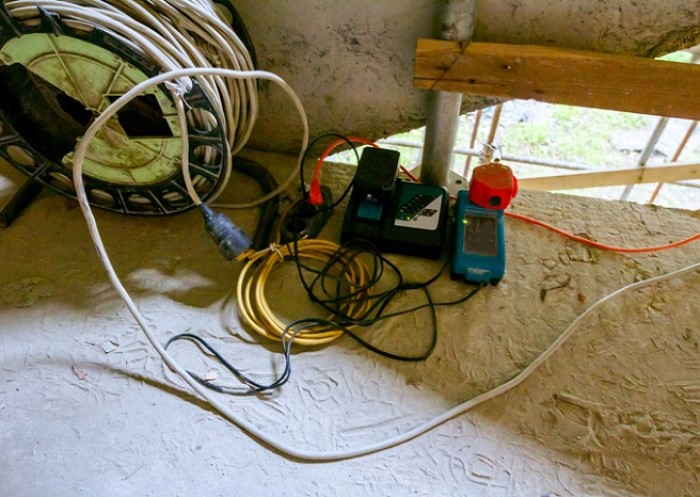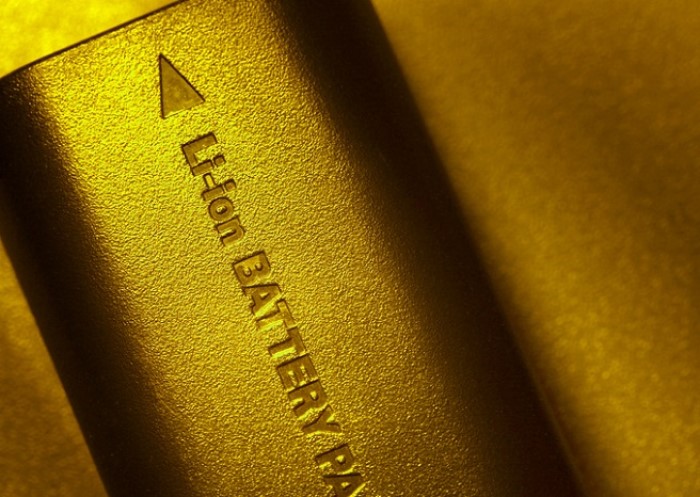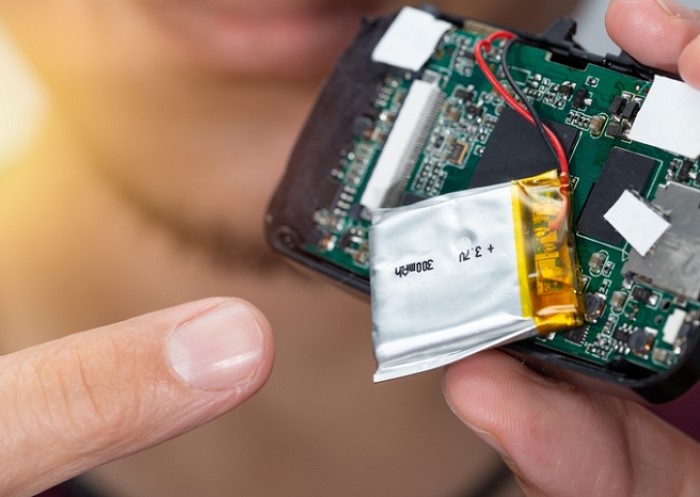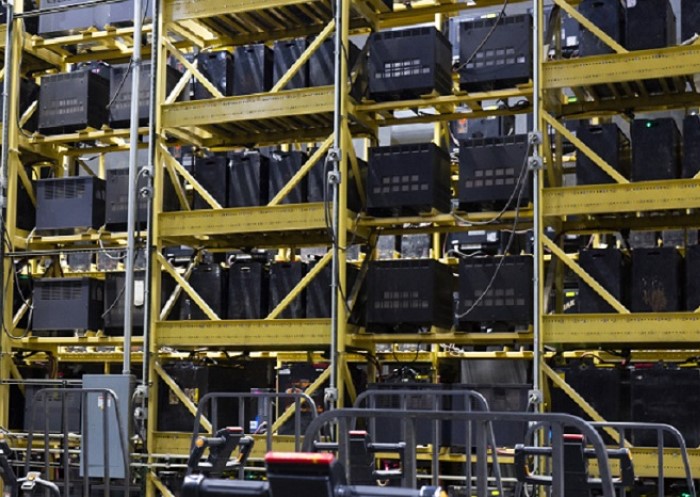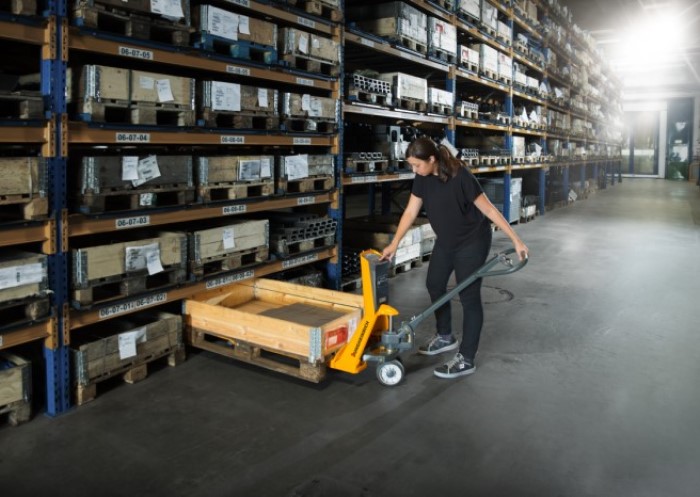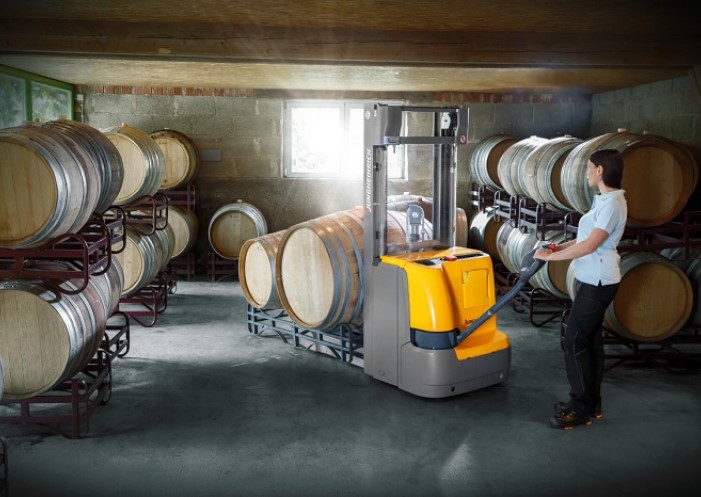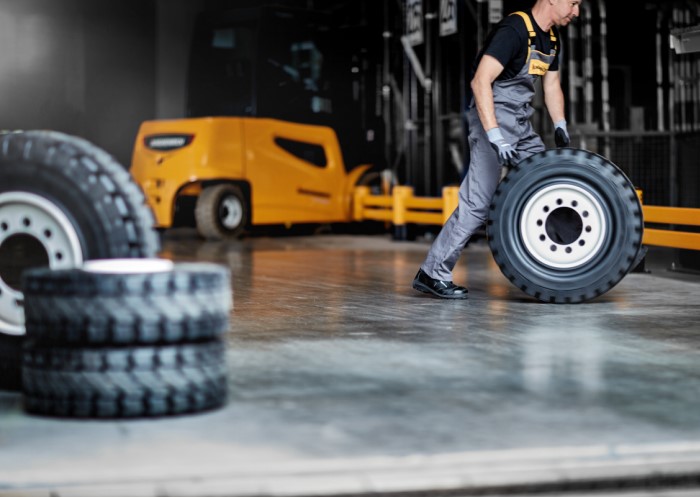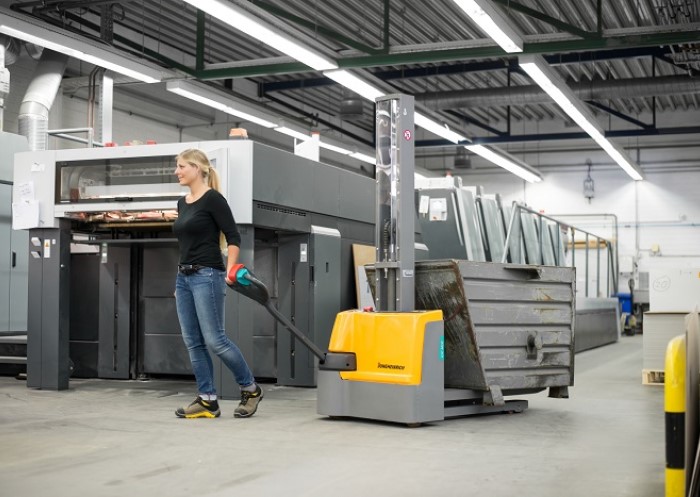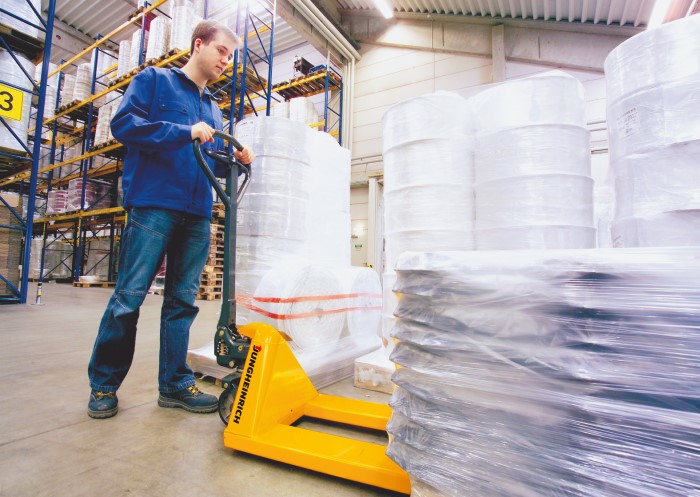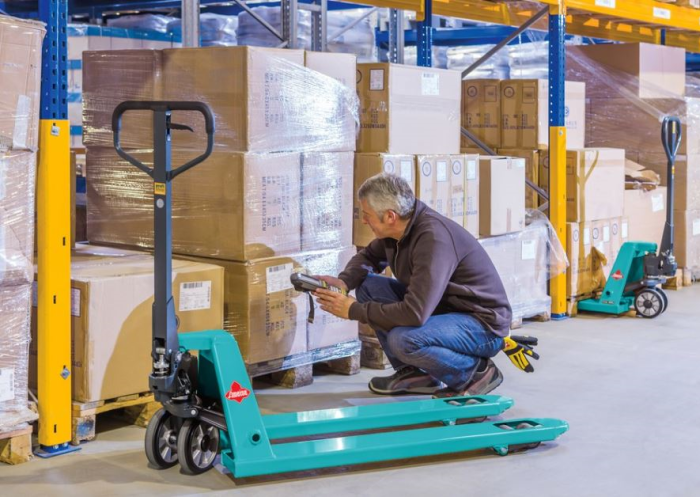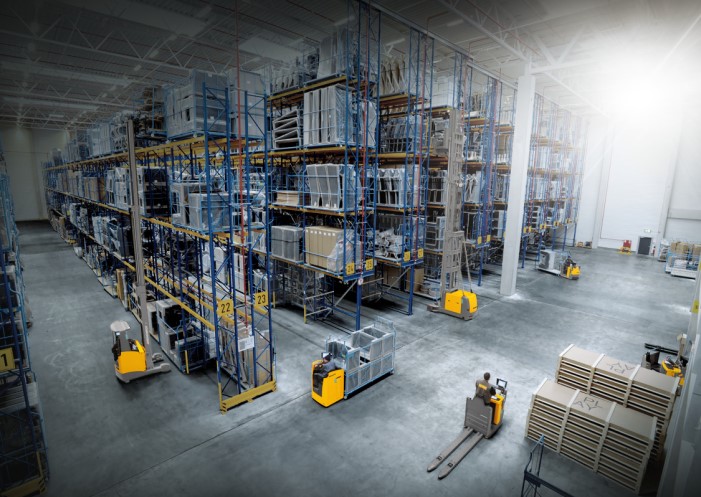Table of contents
Lithium-ion batteries are the most powerful energy storage devices currently available on the market. Their high energy density makes it possible to achieve superior performance even with a relatively compact design. For this reason, they are used in a wide range of applications: from tablets and digital cameras to electrically driven industrial trucks. In contrast to other battery technologies, these power packs can be recharged at any time so they can also be used in multiple-shift operations.
Comprehensive information on lithium-ion batteries
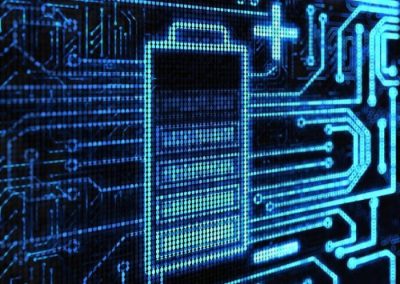
Lithium-ion batteries: construction and function
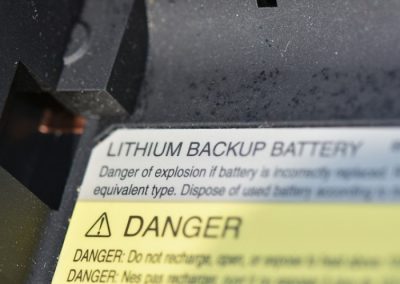
Lithium-ion battery transport

How to test lithium-ion battery capacity
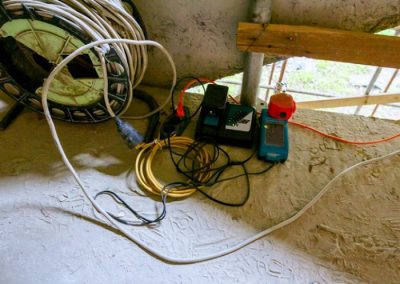
How to charge lithium-ion batteries correctly
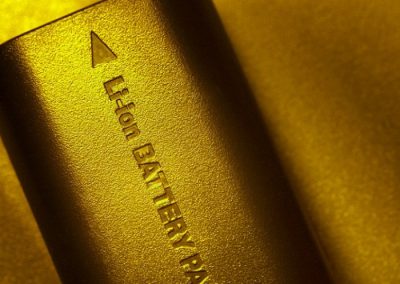
The energy density of lithium-ion batteries
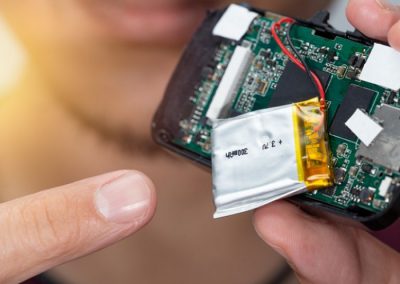
Lithium-ion battery disposal and recycling: How to do it correctly
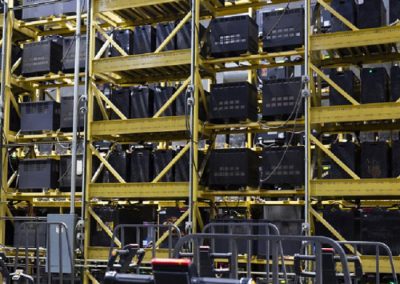
Lithium-ion battery storage: What you should pay attention to
Features of lithium-ion batteries
The unique construction and function of lithium-ion batteries is what makes them such powerful energy storage devices. Every lithium battery contains a polymer separator to prevent short circuits from occurring. To make an educated purchase of lithium-ion pallet trucks or electric tools powered by this technology and to correctly estimate follow-up costs, it is essential to consider both the advantages and disadvantages of lithium-ion battery technology. Here are some of these advantages and disadvantages at a glance:
Advantages of lithium-ion batteries
Lithium-ion batteries are among the most advanced energy storage technologies available on the market today. Hence, they are used to operate electrically powered devices of all kinds — from smartphones and battery-powered tools to electric forklifts and electric vehicles. Some of their advantages include:
- Wide range of applications: From smartphones to electric vehicles, Li-ion batteries can be installed in almost all electronic devices.
- Long service life: Up to 3000 charging cycles are possible if Li-ion batteries are handled properly.
- High current: Where a large amount of energy is needed, such as for use in devices like cordless drills or electric vehicles, lithium-ion batteries work very well because they can provide particularly high amperages. This means they can provide enough power, even for energy-intensive operations.
- High energy density: A Li-ion battery can store three to four times as much energy as a nickel-cadmium (NiCd) battery of the same size. This makes the batteries particularly interesting for use in mobile devices, which should guarantee a long service life despite their small size.
- Low self-discharge: In contrast to conventional lead-acid batteries, the self-discharge of lithium-ion batteries is very low: the capacity loss of the batteries is only 1-2 % per month. By storing the lithium batteries correctly, this can be kept constantly low even when not in use.
- No memory effect: The memory effect present in conventional NiCd batteries causes them to lose power over time. Modern lithium-ion batteries function without memory effect so that the capacity of the batteries remains constant.
- No deep discharge: An integrated control technology usually prevents deep discharge of Li-ion batteries.
This video explains how the lithium-ion battery powered pallet trucks of the EJE M and EJC M series function:
Intermediate charging is possible: Another advantage of lithium-ion batteries is that they can be charged at any time, even if the battery is not yet empty. In this case, the intermediate charge can take place completely or only partially without damaging the battery. You can find out more in our guide on how to measure battery capacity.
Disadvantages of lithium batteries
Despite their advanced technology, lithium batteries also have some disadvantages. Although many of these disadvantages have already been eliminated or at least improved upon in the past through technical adjustments, some of the “downsides” of lithium-ion batteries are still an issue:
- Fire hazard: Lithium is extremely reactive – damaged batteries can overheat, posing a fire hazard.
- Temperature sensitivity: Many lithium batteries react sensitively both at low temperatures (below 5 degrees Celsius) and at high temperatures (more than 35 degrees Celsius). Avoid exposing these batteries to overly high or low temperatures!
- Low environmental compatibility in the extraction of raw materials: The extraction of the raw materials used in Li-ion batteries, such as cobalt, aluminium and lithium, is harmful to the environment. It causes high water consumption, pollution by toxic substances and profound interference in landscapes and ecosystems. In many mining regions, work is also carried out under exploitative conditions. Steps are currently being taken to optimise the mining processes.
- Disposal and recycling: The highly reactive components of the batteries turn the technology into hazardous waste that must be disposed of accordingly. At present, there is no established recycling process to recover all the raw materials contained in a low-pollutant and high-quality manner.
The advantages of lithium-ion batteries outweigh the disadvantages
Despite the disadvantages of lithium batteries, the advantages of this advanced technology outweigh the disadvantages. Manufacturers and scientists are already working successfully on optimising the batteries in order to make them suitable for use in electric cars across the board in the future. Ultimately, this will also benefit intralogistics vehicles as well as users of mobile devices and power tools. With the right storage of lithium-ion batteries, many of the disadvantages – such as deep discharge or temperature sensitivity – can also be well compensated.
How to handle lithium-ion batteries correctly
The lithium inside these batteries is very reactive. Defective batteries can overheat due to water ingress or even due to condensation, which increases the risk of fire. For these reasons, lithium-ion batteries are classified as dangerous goods by law, and certain guidelines must be observed when transporting them. Suitable storage and charging facilities must therefore be available for the transport and charging of lithium-ion batteries, e.g., in the form of battery safety cabinets. In addition, certain safety regulations for operational fire protection must be observed. For the storage of lithium-ion batteries, it is also advised to follow the current safety recommendations.
With regard to the disposal and recycling of lithium-ion batteries, the regulations from the disposal laws must be taken into account. As the main property of lithium is its reactive nature and instability, the Waste Batteries & Accumulators Regulations (2009) have determined the appropriate means to dispose of batteries that contain this chemical element.
There are take-back obligations for manufacturers and sales outlets in the UK that sell more than 32kg of lithium-ion batteries annually. Large-scale take-back systems such as Valpak or Veolia also offer suitable disposal options for companies that use lithium-ion batteries.
When handled correctly, lithium-ion batteries can be used safely in daily operations. Depending on the manufacturer, battery model and chemical composition, they can achieve a long lifespan with several hundred to a thousand charging cycles. For example, Jungheinrich’s lithium-ion batteries are specified to have 800 to a maximum of 3000 possible charge cycles.
FAQ about lithium-ion batteries
The service life of lithium-ion batteries differs depending on the manufacturer, battery model and chemical composition. With proper use, storage and charging, you can use Li-ion batteries from Jungheinrich, for example, for 800 to a maximum of 3000 charging cycles.
These energy sources are very long-lasting and powerful and can be used in a wide range of applications. In addition, they do not have a memory effect.
The energy sources are not particularly environmentally friendly: the mining conditions of the raw materials have far-reaching negative effects on humans and nature. In addition, there is currently no uniform established recycling system. Another important point is the fire hazard of damaged batteries because properties of lithium include its extremely reactive nature which can cause fires if the energy carriers are defective.
Image source:
© gettyimages.de – MF3d

